

JANUARY 2024
DEC 2025
9 DAYS | 8 NIGHTS | GREECE
Ancient Greece
Ancient Greece
Starting in the capital city of Athens, we’ll visit some of the most significant archeological sites in the world, including the Acropolis, Mycenae and Epidaurus. We’ll also visit the medieval castle town of Mystras; Olympia, where the first Olympic Games took place; Delphi, where heaven and Earth meet; and the stone forest of Meteora, home to one of the largest Orthodox communities in Greece. At the same time, we’ll cover a large part of the mainland, including the Peloponnese peninsula and central Greece, enjoying beautiful coastlines, forests and mountains along the way.
You will be directed to our partner site for booking your plan
You will be directed to our partner site for booking your plan


9 days 8 nights
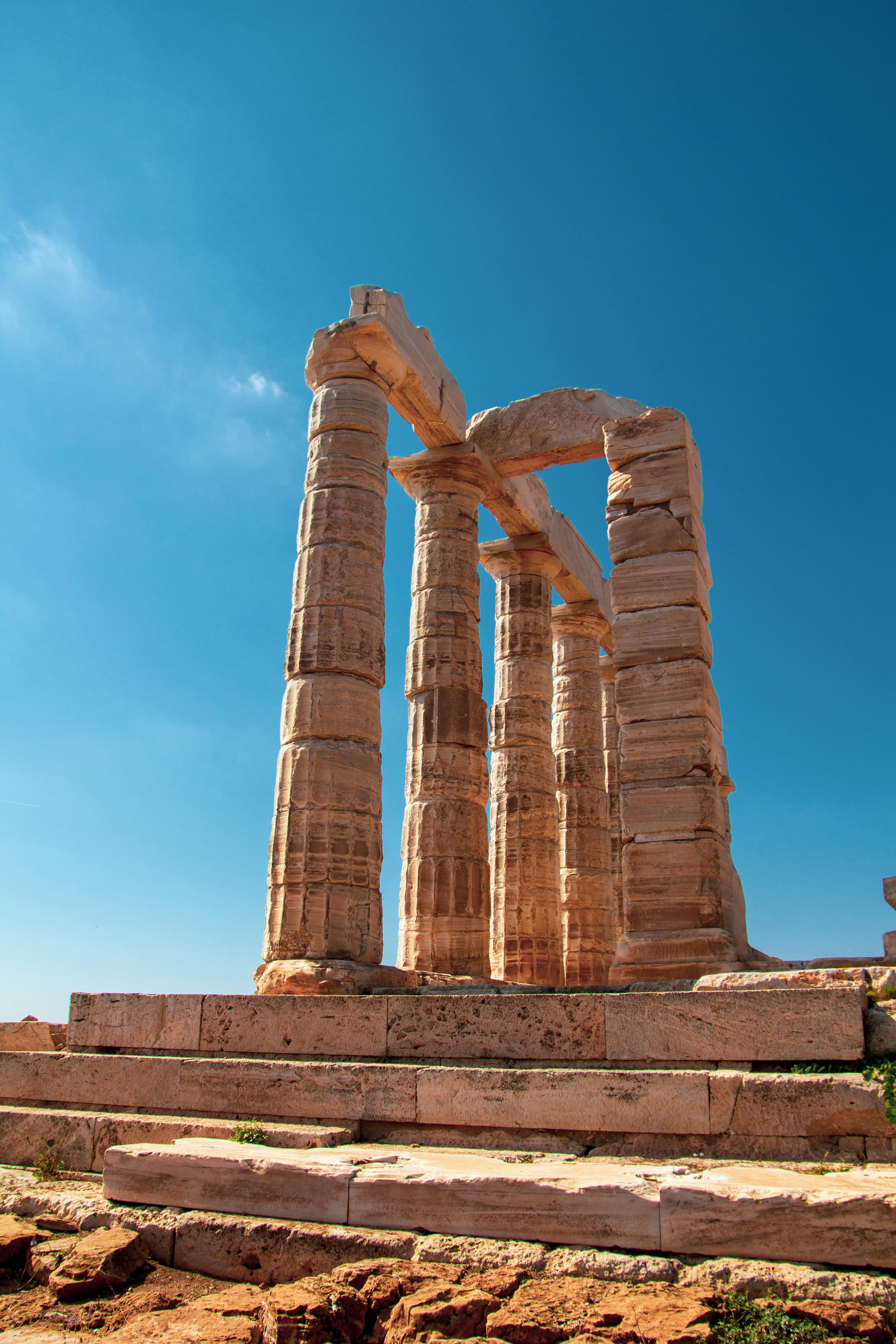

Ancient Greece
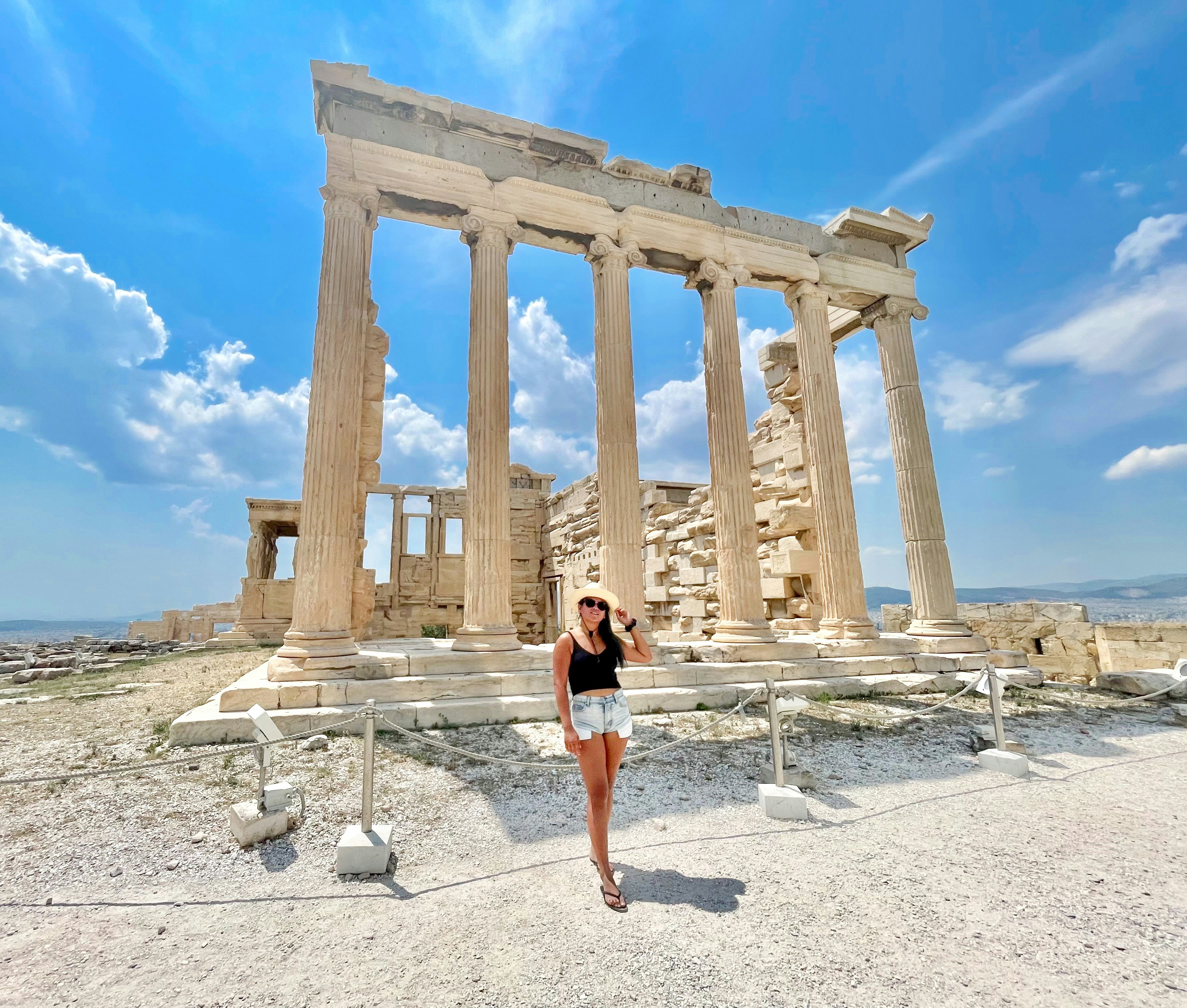

Acropolis Ruins
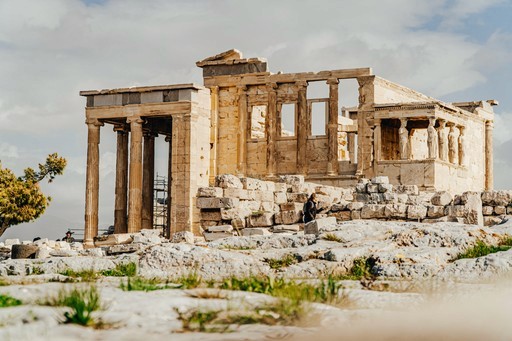

Acropolis Museum
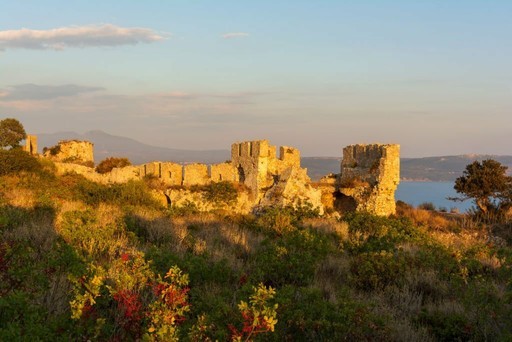

Castle of Pylos
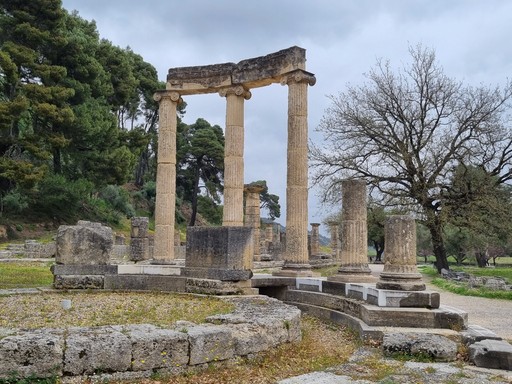

AncientOlympia
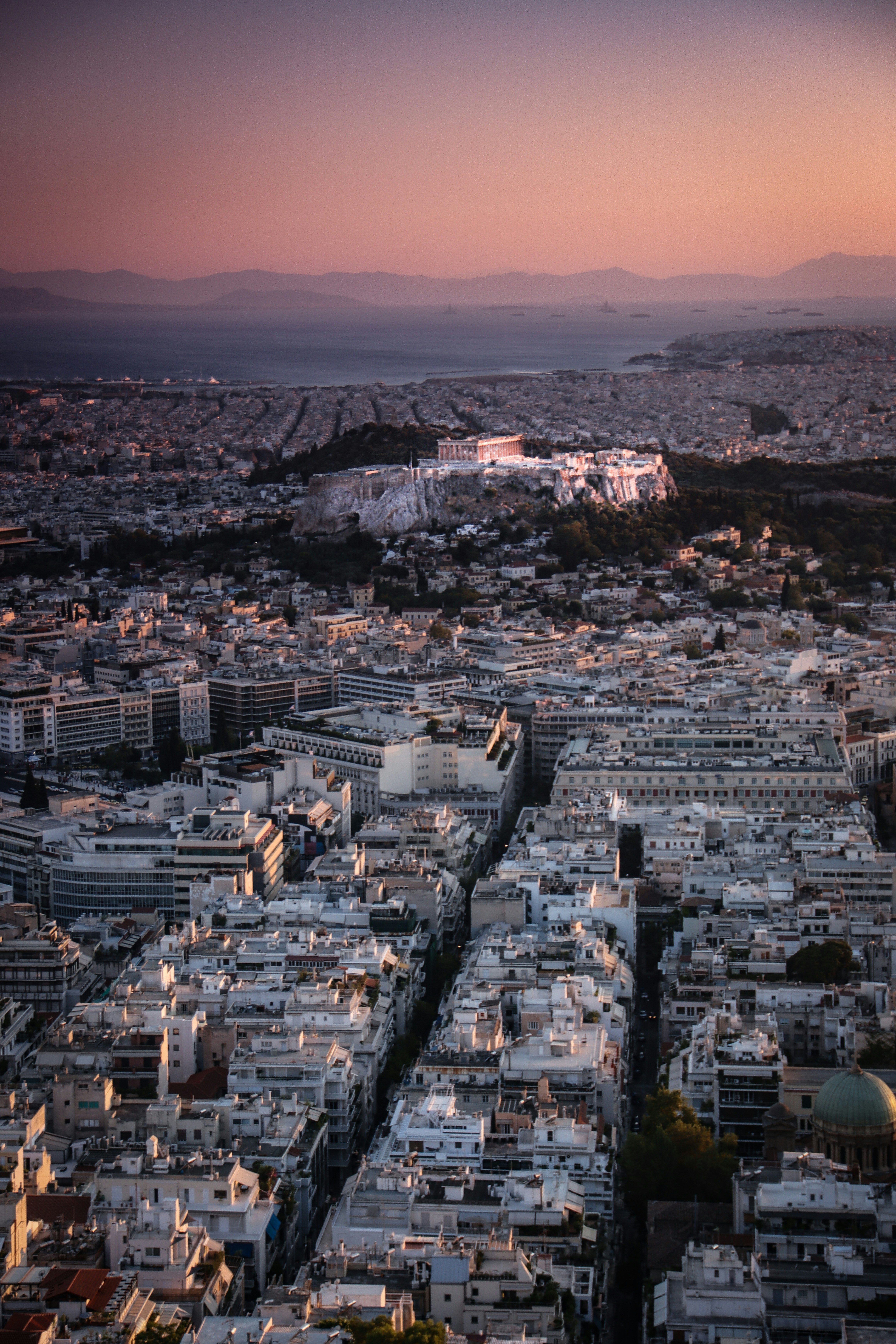
TRIP
Itinerary
SCROLL FOR MORE
DAY 01: ATHENS
Hello
Athens!
Our adventure begins in Athens, an enthralling capital city soaked in myth and legend. Depending on when you land, you may have time to explore a little or perhaps dive into a taverna to sink your teeth into the much-loved local cuisine. Either way, we’ll gather at the hotel for a welcoming briefing in the evening when we’ll meet as a group for the first time.
Accommodation: Arion Hotel (or similar)
DAY 02: ATHENS
Acropolis Ruins
& Museum
This morning we embark on a walking tour of Athens, taking in the Acropolis ruins and artefact-filled Acropolis Museum. This walk is actually a journey through the history of the city; from the classical world ruled by the Olympian deities to the 21st century.The afternoon is free for you to explore Athens on your own. Your leader can suggest where to visit.Please note: During busy periods, the walking tour might take place in the afternoon when it is quieter and the morning will be free.
Accommodation: Arion Hotel (or similar)
Meals included: Breakfast
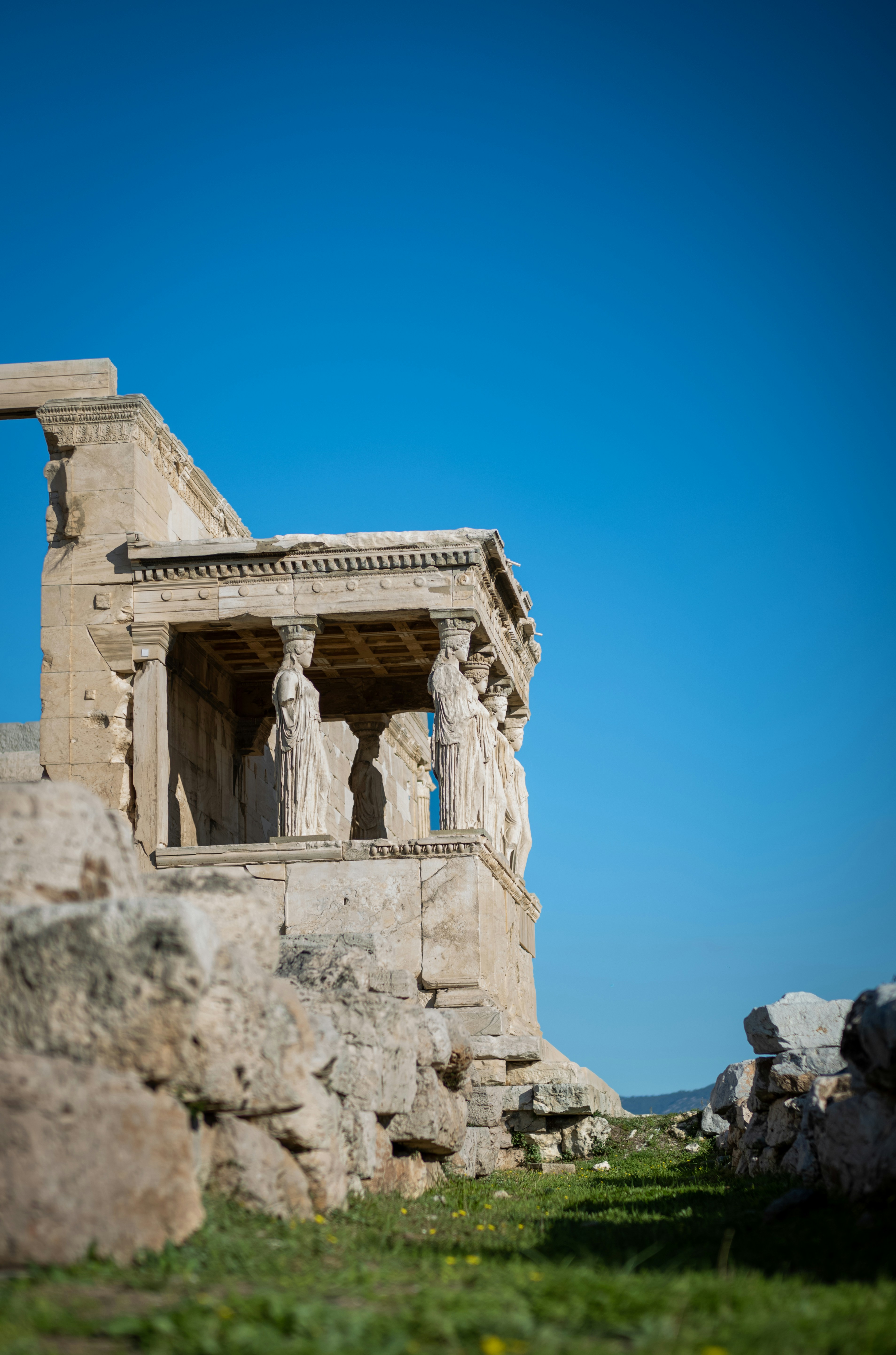
DAY 03: NAFPLIO
Ancient Corinth
& Mycenae
After breakfast, we head to Nafplio. On the way, we stop at the Corinth Canal, which separates the Peloponnese from mainland Greece and connects the Gulf of Corinth with the Aegean Sea. We then visit the archaeological site of Corinth, one of the major cities in antiquity and an important centre of trade. Extended excavations here have revealed a Roman forum, temples, fountains and various other monuments.We then continue to the archaeological site of Mycenae, the kingdom of legendary Agamemnon and the most important and richest palatial centre of the Late Bronze Age in Greece. Mycenae comprises a fortified acropolis and surrounding funerary and habitation sites. We then head to the picturesque town of Nafplio, where we spend the night.
Accommodation: Rex Hotel (or similar)
Meals included: Breakfast
DAY 04: SPARTA
Explore
Epidaurus
Today we visit the impressive Venetian fortress of Palamidi, overlooking the town. It was initially fortified by the Venetians during the second Venetian occupation of the area (1686-1715). In 1715, it was captured by the Turks and remained under their control until 1822, when it was liberated by the Greeks. The most important monuments we’ll visit are the castle, and the prison of Kolokotronis, a hero of the Greek Revolution.Next, we will explore Epidaurus (approximately a 45-minute drive from Nafplio), where the Sanctuary of Asclepius, the most famous healing centre of the classical world, is found. We’ll also visit the Ancient Theatre of Epidaurus, one of the finest examples of its kind. In the afternoon, we head to Sparta, a powerful city-state in ancient times, where we spend the night.
Accommodation: Lakonia or Maniatis Hotel (or similar)
Meals included: Breakfast
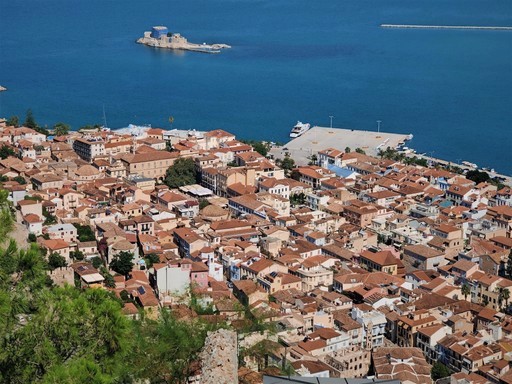
DAY 05: PYLOS
Mystras
& Messene
This morning we visit Mystras, a Unesco World Heritage site known as the Wonder of the Morea. We explore the site on foot, visiting beautiful Byzantine churches, mostly built between the 12th and 15th centuries; the palaces of the Mystras Despots; and some urban buildings.Please note: Unfortunately, the castle and the palaces are closed for reconstruction so we are unable to enter any buildings. We will have a look at them from the outside.In the afternoon, we head towards ancient Messene, one of the finest and best-restored archaeological sites in Greece, yet still relatively unknown. Among the site monuments, we will visit the ancient theatre, agora, and Asclepeion. The stadium and gymnasium are among the most impressive and well-preserved building complexes in ancient Messene. We then drive to the seaside town of Pylos, where we will spend the night.
DAY 06: OLYMPIA
Castle
of Pylos
After breakfast, we will visit the Castle of Pylos, which also hosts a fine exhibition and museum of underwater antiquities. Here you will find out more about underwater archeology in Greece, how research, excavations and preservation of the antiquities take place. You will also see artefacts from shipwrecks found in the sea near the Peloponnese and Ionian islands.After lunch, we’ll drive along the west coast of the Peloponnese towards Olympia where we spend the night (approximately a two-hour drive).
Accommodation: Hotel Pelops (or similar)
Meals included: Breakfast
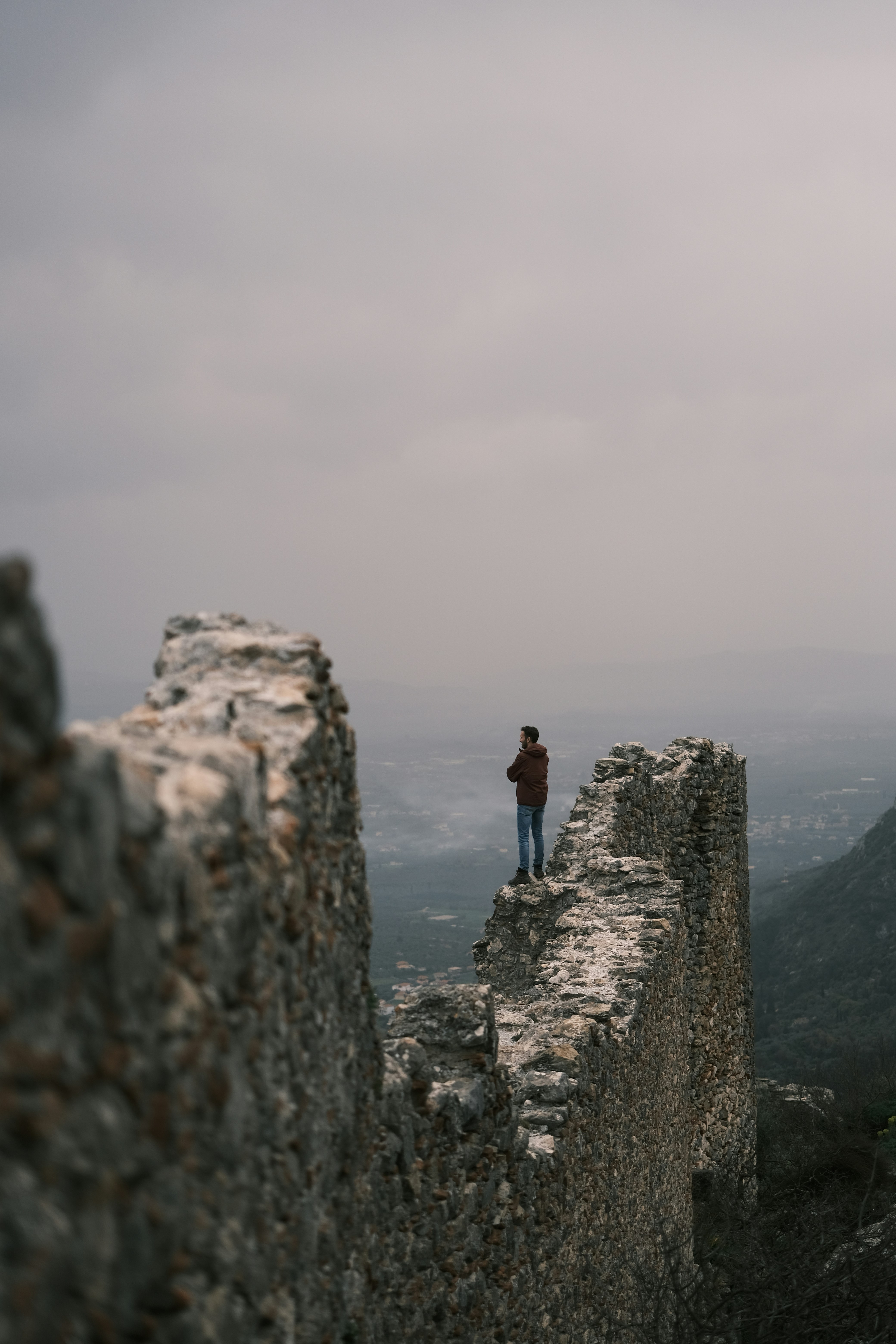
DAY 07: DELPHI
Explore
Ancient Olympia
After breakfast, we visit ancient Olympia, the site that hosted the first Olympic Games. At the confluence of two rivers, in a lush landscape, near the west coast of the Peloponnese, Olympia is the most important religious and athletic centre in Ancient Greece. We will explore this major archeological site, including the Sanctuary of Zeus and the many buildings put up around it, such as an athletic premises used for the preparation and celebration of the Olympic Games, administrative buildings, and other lay buildings and monuments (the Temple of Hera, the Council House, the Ancient Stadium and Gymnasium and the Altar of Zeus).After lunch, we will drive (approximately 3hr 30min) to Delphi where we will spend the night. En route, we will cross from the Peloponnese peninsula to mainland Greece and will have the chance to admire the cable-stayed Rio-Antirrio Bridge, a masterpiece of architecture.
DAY 08: METEORA
Explore
Delphi
In the morning, we will head to the Unesco World Heritage site of Delphi. We will explore this magnificent archaeological zone on foot, the place that in ancient times was considered the centre of the world, the place where heaven and Earth met. Once at the archaeological site, we’ll visit the Temple of Apollo, the Treasury of the Athenians and of the Siphnians, the ancient theatre and the Castalian Spring that was considered the sacred source of Delphi.After lunch, we head northeast to the Unesco World Heritage site of Meteora (approximately a four-hour drive). Meteora is one of the largest Greek Orthodox communities in Greece, second only to Mount Athos. Situated over the town of Kalampaka, on the northwest edge of the Plain of Thessaly (in central Greece), Meteora is one of the most imposing sights in Greece. What makes Meteora even more astonishing are the monasteries perched on top of rocky pinnacles. We aim to arrive in Meteora late afternoon, going to several viewpoints where we can enjoy panoramic views over the Kalampaka plain and stone forest of Meteora.
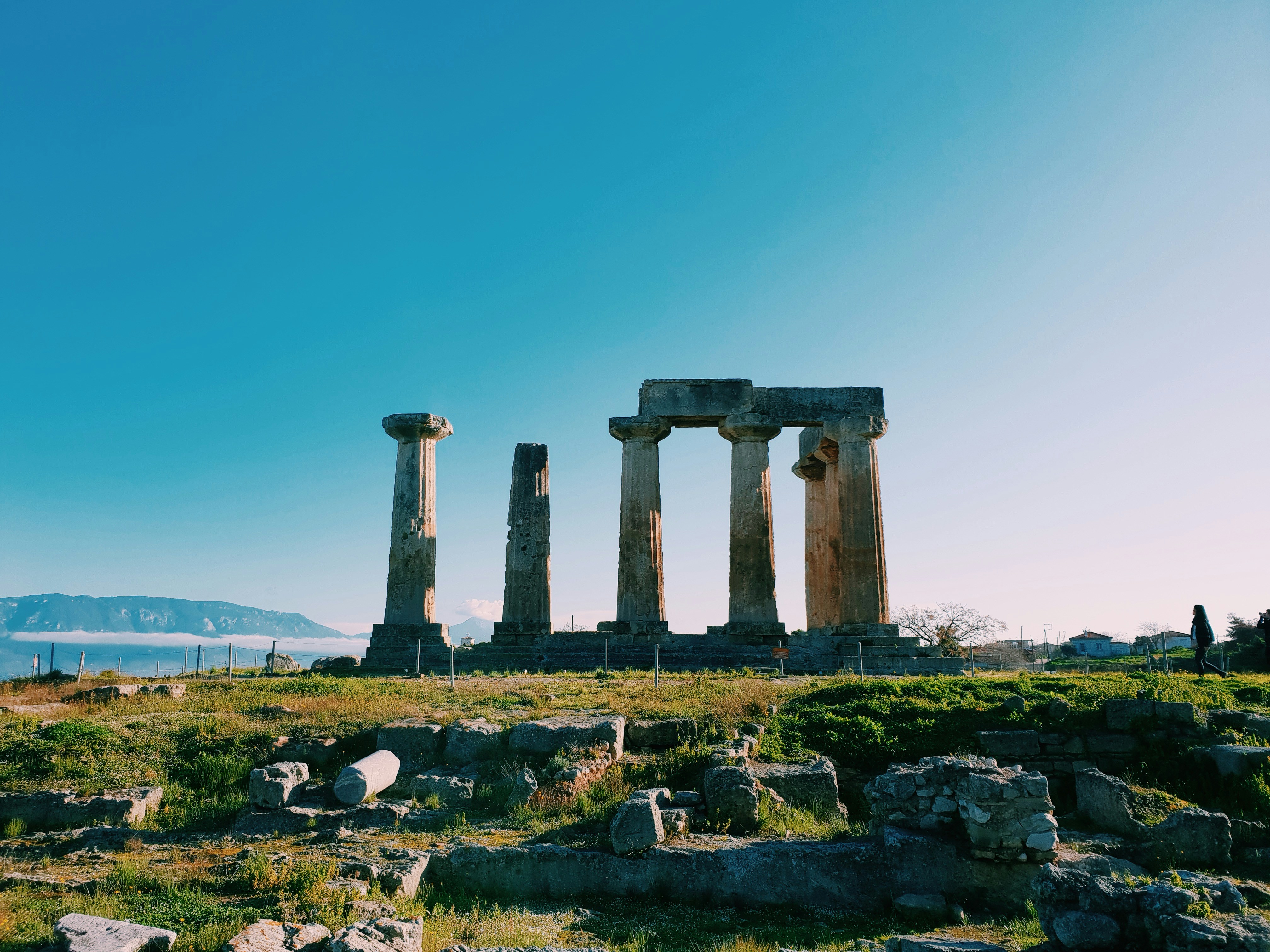
DAY 09: ATHENS
Bye
Athens!
After breakfast, we will visit one of the cliff–top monasteries of Meteora and learn more about their history and monastic life. The area of Meteora was initially inhabited by monks who lived in caves within the rocks during the 11th century.Please note: Clothing must cover knees and shoulders for both men and women to enter the clifftop monasteries of Meteora.After lunch, we’ll return to Athens airport (approximately a 4hr 30min drive) where our adventure will end. Please note, we offer post-tour accommodation if you prefer to fly back the next day.
Meals included: Breakfast
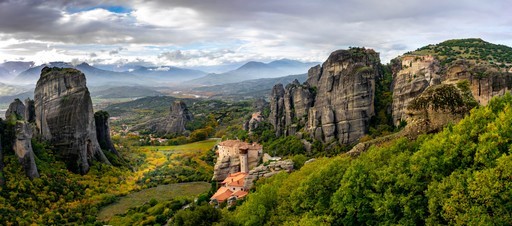
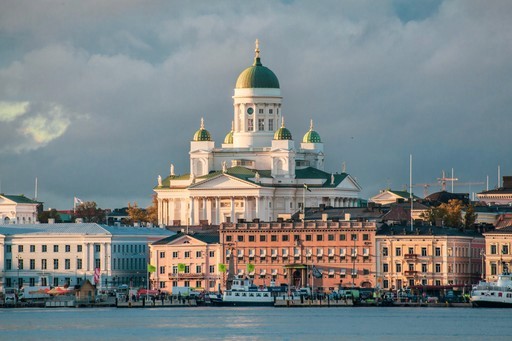
TRIP
Itinerary
SCROLL FOR MORE
DAY 01: ATHENS
Hello
Athens!
Our adventure begins in Athens, an enthralling capital city soaked in myth and legend. Depending on when you land, you may have time to explore a little or perhaps dive into a taverna to sink your teeth into the much-loved local cuisine. Either way, we’ll gather at the hotel for a welcoming briefing in the evening when we’ll meet as a group for the first time.
Accommodation: Arion Hotel (or similar)
DAY 02: ATHENS
Acropolis Ruins
& Museum
This morning we embark on a walking tour of Athens, taking in the Acropolis ruins and artefact-filled Acropolis Museum. This walk is actually a journey through the history of the city; from the classical world ruled by the Olympian deities to the 21st century.The afternoon is free for you to explore Athens on your own. Your leader can suggest where to visit.Please note: During busy periods, the walking tour might take place in the afternoon when it is quieter and the morning will be free.
Accommodation: Arion Hotel (or similar)
Meals included: Breakfast
DAY 03: NAFPLIO
Ancient Corinth
& Mycenae
After breakfast, we head to Nafplio. On the way, we stop at the Corinth Canal, which separates the Peloponnese from mainland Greece and connects the Gulf of Corinth with the Aegean Sea. We then visit the archaeological site of Corinth, one of the major cities in antiquity and an important centre of trade. Extended excavations here have revealed a Roman forum, temples, fountains and various other monuments.We then continue to the archaeological site of Mycenae, the kingdom of legendary Agamemnon and the most important and richest palatial centre of the Late Bronze Age in Greece. Mycenae comprises a fortified acropolis and surrounding funerary and habitation sites. We then head to the picturesque town of Nafplio, where we spend the night.
Accommodation: Rex Hotel (or similar)
Meals included: Breakfast
DAY 04: SPARTA
Explore
Epidaurus
Today we visit the impressive Venetian fortress of Palamidi, overlooking the town. It was initially fortified by the Venetians during the second Venetian occupation of the area (1686-1715). In 1715, it was captured by the Turks and remained under their control until 1822, when it was liberated by the Greeks. The most important monuments we’ll visit are the castle, and the prison of Kolokotronis, a hero of the Greek Revolution.Next, we will explore Epidaurus (approximately a 45-minute drive from Nafplio), where the Sanctuary of Asclepius, the most famous healing centre of the classical world, is found. We’ll also visit the Ancient Theatre of Epidaurus, one of the finest examples of its kind. In the afternoon, we head to Sparta, a powerful city-state in ancient times, where we spend the night.
Accommodation: Lakonia or Maniatis Hotel (or similar)
Meals included: Breakfast
DAY 05: PYLOS
Mystras
& Messene
This morning we visit Mystras, a Unesco World Heritage site known as the Wonder of the Morea. We explore the site on foot, visiting beautiful Byzantine churches, mostly built between the 12th and 15th centuries; the palaces of the Mystras Despots; and some urban buildings.Please note: Unfortunately, the castle and the palaces are closed for reconstruction so we are unable to enter any buildings. We will have a look at them from the outside.In the afternoon, we head towards ancient Messene, one of the finest and best-restored archaeological sites in Greece, yet still relatively unknown. Among the site monuments, we will visit the ancient theatre, agora, and Asclepeion. The stadium and gymnasium are among the most impressive and well-preserved building complexes in ancient Messene. We then drive to the seaside town of Pylos, where we will spend the night.
DAY 06: OLYMPIA
Castle
of Pylos
After breakfast, we will visit the Castle of Pylos, which also hosts a fine exhibition and museum of underwater antiquities. Here you will find out more about underwater archeology in Greece, how research, excavations and preservation of the antiquities take place. You will also see artefacts from shipwrecks found in the sea near the Peloponnese and Ionian islands.After lunch, we’ll drive along the west coast of the Peloponnese towards Olympia where we spend the night (approximately a two-hour drive).
Accommodation: Hotel Pelops (or similar)
Meals included: Breakfast
DAY 07: DELPHI
Explore
Ancient Olympia
After breakfast, we visit ancient Olympia, the site that hosted the first Olympic Games. At the confluence of two rivers, in a lush landscape, near the west coast of the Peloponnese, Olympia is the most important religious and athletic centre in Ancient Greece. We will explore this major archeological site, including the Sanctuary of Zeus and the many buildings put up around it, such as an athletic premises used for the preparation and celebration of the Olympic Games, administrative buildings, and other lay buildings and monuments (the Temple of Hera, the Council House, the Ancient Stadium and Gymnasium and the Altar of Zeus).After lunch, we will drive (approximately 3hr 30min) to Delphi where we will spend the night. En route, we will cross from the Peloponnese peninsula to mainland Greece and will have the chance to admire the cable-stayed Rio-Antirrio Bridge, a masterpiece of architecture.
DAY 08: METEORA
Explore
Delphi
In the morning, we will head to the Unesco World Heritage site of Delphi. We will explore this magnificent archaeological zone on foot, the place that in ancient times was considered the centre of the world, the place where heaven and Earth met. Once at the archaeological site, we’ll visit the Temple of Apollo, the Treasury of the Athenians and of the Siphnians, the ancient theatre and the Castalian Spring that was considered the sacred source of Delphi.After lunch, we head northeast to the Unesco World Heritage site of Meteora (approximately a four-hour drive). Meteora is one of the largest Greek Orthodox communities in Greece, second only to Mount Athos. Situated over the town of Kalampaka, on the northwest edge of the Plain of Thessaly (in central Greece), Meteora is one of the most imposing sights in Greece. What makes Meteora even more astonishing are the monasteries perched on top of rocky pinnacles. We aim to arrive in Meteora late afternoon, going to several viewpoints where we can enjoy panoramic views over the Kalampaka plain and stone forest of Meteora.
DAY 09: ATHENS
Bye
Athens!
After breakfast, we will visit one of the cliff–top monasteries of Meteora and learn more about their history and monastic life. The area of Meteora was initially inhabited by monks who lived in caves within the rocks during the 11th century.Please note: Clothing must cover knees and shoulders for both men and women to enter the clifftop monasteries of Meteora.After lunch, we’ll return to Athens airport (approximately a 4hr 30min drive) where our adventure will end. Please note, we offer post-tour accommodation if you prefer to fly back the next day.
Meals included: Breakfast
Pricing
Inquire for Pricing
The itinerary has a service based option. You can pick the events and experiences you want to be a part of. Fill out this with a small message as to what all you'll be interested in and we'd love to get things rolling for you!
You will be directed to our partner site for booking your plan
You will be directed to our partner site for booking your plan
You will be directed to our partner site for booking your plan
You will be directed to our partner site for booking your plan
What's
Included
All breakfasts
All accommodation
All transport and listed activities
Tour leader and archaeological guide throughout
Free group arrival and departure transfers available
What's not
Included
Travel Insurance
Single accommodation (available on request)
Visas or vaccinations
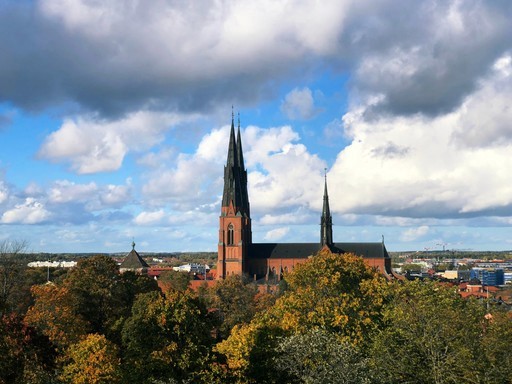
Why not turn this into a private
with Anima
